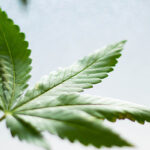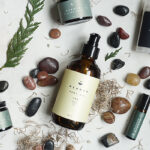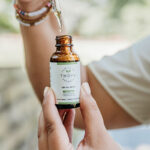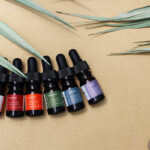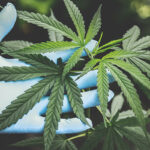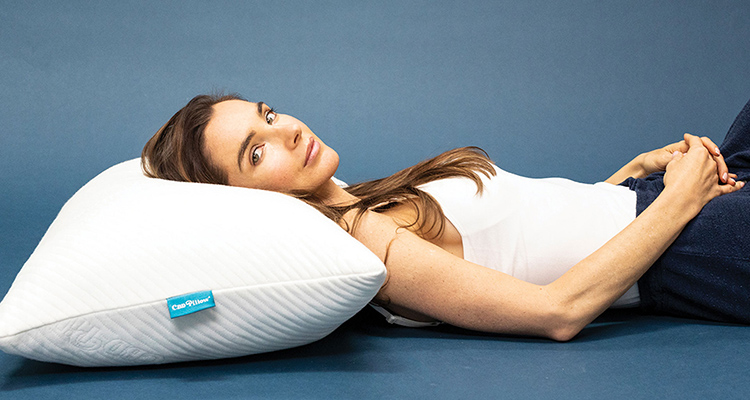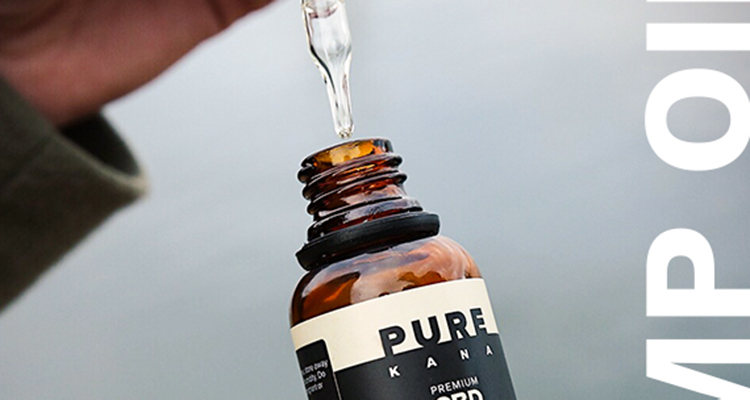Can CBD Help You Get More Sleep?
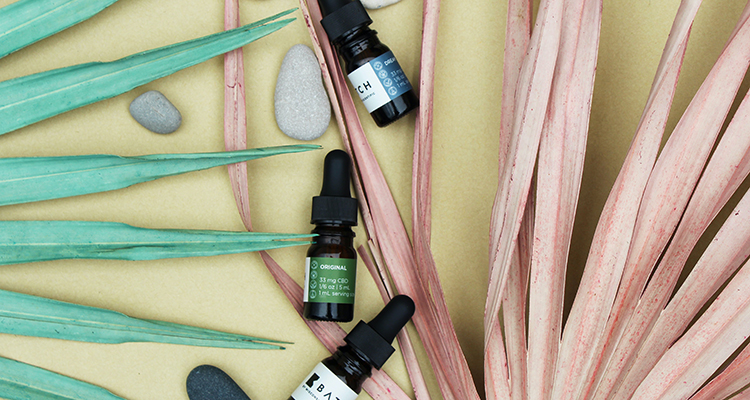
CBD has quickly become the new alternative go-to for a variety of ailments, such as anxiety, chronic pain, and insomnia. But what exactly is CBD and how does it work? What is its origin? Is this miracle pain-relieving, health-boosting, and anxiety-easing compound even effective? Most of all can it help you get some quality zzz at night? Perhaps.
Research on the benefits, effectiveness, and side-effects are limited at this time. However, current studies suggest that CBD may be largely devoid of serious side-effects and largely beneficial for people looking to ease their stress and anxiety and improve their health. The good news is early study results indicate that CBD may be effective for stress, anxiety, discomfort, and even a bit of shut-eye.
If you are wondering if CBD can be beneficial for you, look no more, because this article will provide you with everything you need to know about CBD for sleep.
Content
What is CBD?
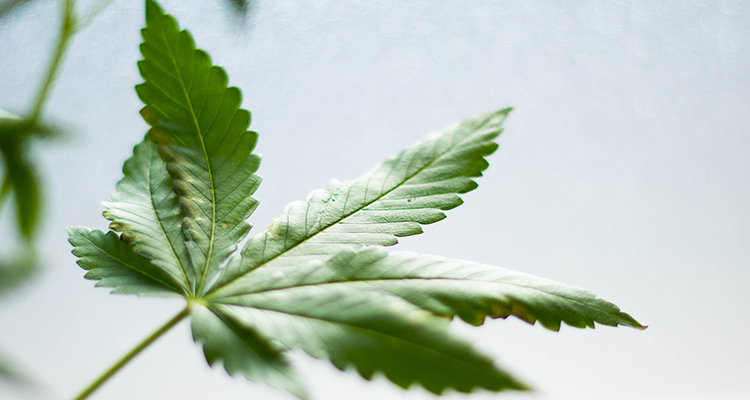
CBD has risen in popularity over the last few years as more and more people have turned to “alternative,” “holistic,” and “natural” supplements to help ease their health concerns. CBD is the abbreviation for “cannabidiol.” Cannabidiol belongs to a group of chemical compounds called “cannabinoids.” Once cannabinoids attach to specific central nervous system receptors, it sends messages throughout your mind and body.
The effects of cannabinoids largely depend on the specific one used, your health concern(s), and your chemical composition. Where does CBD come in? Well, as you probably guessed CBD (cannabidiol) is one of the most popular cannabinoids. Another cannabinoid that is not only popular but widely researched is tetrahydrocannabinol (THC) the main ingredient in cannabis or marijuana.
Researchers have found that while THC produces the well-known “high” that’s commonly associated with marijuana (pot), CBD does not. In other words, it does not have the psychoactive properties that make you feel “floaty” and euphoric. So, although CBD may ease your pain and relax your body, it does not give you that often sought-after THC “buzz.” Still CBD is appealing for those who want a natural pain-relief option without the “high” or side-effects. While early research suggests that CBD can be beneficial for ailments like insomnia, it is important note that it may not work for everyone and every health concern.
What Form of CBD Should Be Taken for Sleep?
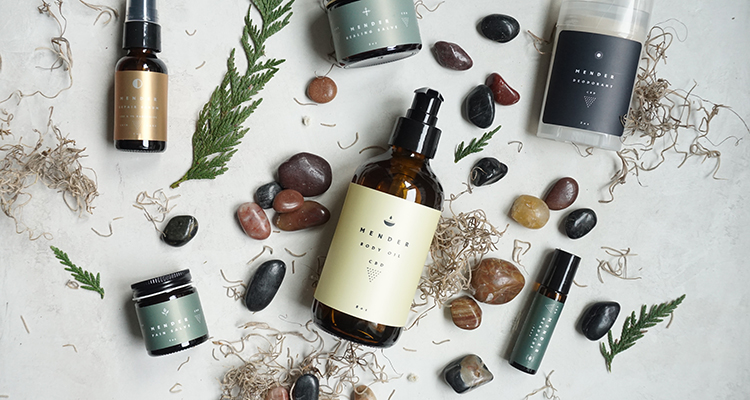
A variety of CBD forms can be taken for sleep, depending on your preferences and/or needs.
Listed below are the various forms of CBD that can help you fall and stay asleep:
- Tinctures – Tinctures contain various strengths of CBD oil and typically come in dropper bottles. The oil can be added to beverages or foods, or a few drops can be placed under the tongue and held for 30-seconds.
- Vaping – Vaping is one of the quickest ways to get CBD in your system, however, it is fraught with risks. Vaping is appealing for insomniacs because the CBD vapors enter the system within seconds. This is beneficial for people who are looking for a quick-acting remedy for their sleep issues. However, it has come to light that vaping, regardless of the reason, can cause significant short-term and long-term effects such as lung disease, pneumonia, and/or delayed immune system and healing responses.
- Sprays – Sprays can also enter your system quickly, but without the side-effects and complications associated with vaping. Similar to tinctures, this form of CBD allows you to spray the CBD oil under your tongue where it is absorbed. The CBD then enters your bloodstream, helping you fall asleep more quickly.
- Topicals & Bath Products – Topicals contain high-levels of CBD. These CBD products are appealing to people who are not fond of inhaling the oil or placing it in their mouths, beverages, or foods. Topicals allow you to simply rub CBD (in the form of skin creams or gels) into your skin.
Bath products like CBD bath bombs can also be used for insomnia. All that is required for this to be effective is to drop the bath bombs into a warm bath and climb in. These bath bombs typically come with a soothing fragrance like lavender. CBD combined with aromatherapy can relax you, so you can fall sleep once your head hits the pillow.
This is not the fastest way to absorb CBD; however, it is one of the most effective ways to get it in your system, primarily because it seeps directly into your skin, which means it directly enters your bloodstream. However, it can take a while for your body to metabolize it. So, it may not be the best choice if you are looking for immediate relief.
How Does CBD Help Insomnia?
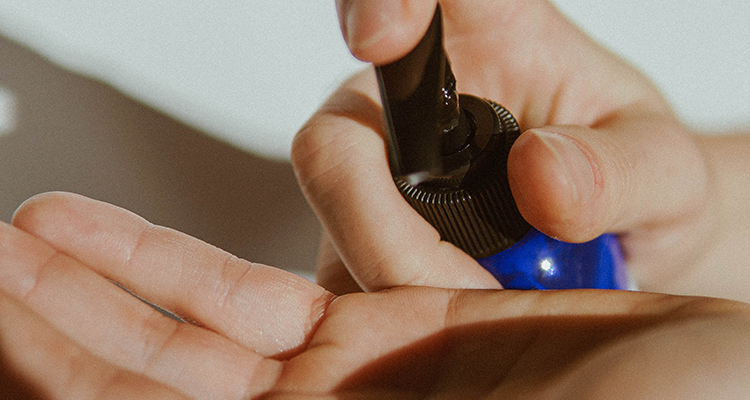
Studies indicate that a person’s endocannabinoid system plays an important role in regulating a variety of bodily functions, such as state-of-mind, circadian rhythms, and sleep quality. The endocannabinoid system involves an intricate network of brain and central nervous system receptors (CB1 and CB2). The goal of cannabinoids is to attach to these receptors. Once attached the cannabinoids produce a variety of effects in the body.
But, how can these cannabinoids help you get some extra zzz? Well, some researchers suggest that CBD (a cannabinoid) may target certain receptors in your brain and central nervous system, balancing or regulating your circadian rhythms (sleep/wake cycles) so you get more sound sleep. Researchers also found that CBD may ease stress, anxiety, and pain – all of which can disrupt or prevent a good night’s sleep. The theory is that once you alleviate your distress; you will sleep better at night.
What are the Benefits of Using CBD for Sleep?
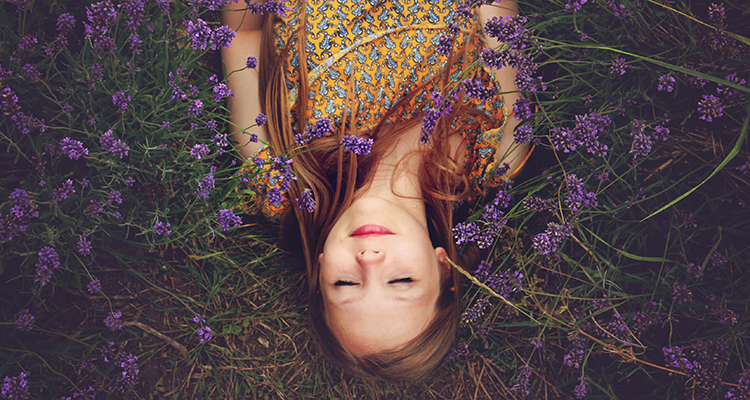
CBD can be used to ease or alleviate a variety of symptoms that could be affecting your sleep, such as anxiety, insomnia, restless-leg syndrome, or narcolepsy.
- AnxietyCBD can aid in quality sleep by reducing anxiety. When you are anxious, it can be hard to fall and stay asleep. Why? Because, your mind is constantly roaming. It is in constant motion, causing your body to tense up. Increased brain activity can prevent your mind and body from relaxing so you can fall asleep. CBD can relax your body and mind so you stay asleep for the long haul.According to a 2016 case study, a 10-year-old girl with sexual-abuse-related PTSD was given CBD daily for 5 months. During this time, the girl experienced a significant decline in anxiety, panic attacks, and PTSD symptoms. As a result, she was finally able to get a good night’s sleep. CBD can block stress hormones, leading to a decline in anxiety. The end result? A peaceful sleep.
- InsomniaWhen you have insomnia, you are unable to fall asleep or stay asleep at night. Anxiety, excessive worrying, chronic pain, depression, or even jet lag can trigger insomnia. Depression can also trigger insomnia making it hard to get a good night’s rest.Approximately 50% of American adults struggle with insomnia. And, guess what? Most of these adults are women. CBD can reduce or eliminate conditions and ailments that are making it impossible for you to get sound sleep.According to researchers, a 27-year-old man, suffering from bipolar disorder and a marijuana addiction, experienced a decline in insomnia after using CBD before bed. The individual reported that CBD lowered his anxiety and helped him fall asleep and stay asleep throughout the night.
- Restless-Leg Syndrome (RLS)Another possible cause of sleep difficulty is restless-leg syndrome (RLS). What is RLS? It involves a relentless “urge” to move your legs. A tingling or needle sensation in your legs can trigger this “urge” to move them. RLS usually presents at night once you have sat or lied down, however it can also occur in the morning.CBD may help calm overactive motor neurons thought to play a role in this condition. In fact, researchers found that CBD was able to completely relieve RLS in some people, thus, promoting sound sleep. However, studies on CBD and RLS are still fairly limited.
- NarcolepsyNarcolepsy involves falling asleep without warning. This neurological condition can happen during the day or night and affects your sleep-wake cycle. It can cause sleep paralysis, where a person is unable to move after waking up.Small doses of CBD can cause “alertness,” which is beneficial for people with narcolepsy. A 2013 study found that rats experienced increased “wakefulness” after they were given 10mcg of CBD. CBD affects a region of the brain referred to as the hypothalamus and the hypothalamus is responsible for regulating your sleep/wake cycle.
What are the Pros & Cons of Using CBD for Sleep Problems?
Before you commit to using CBD for your health, it is important to evaluate the pros and cons for your specific health concern(s).
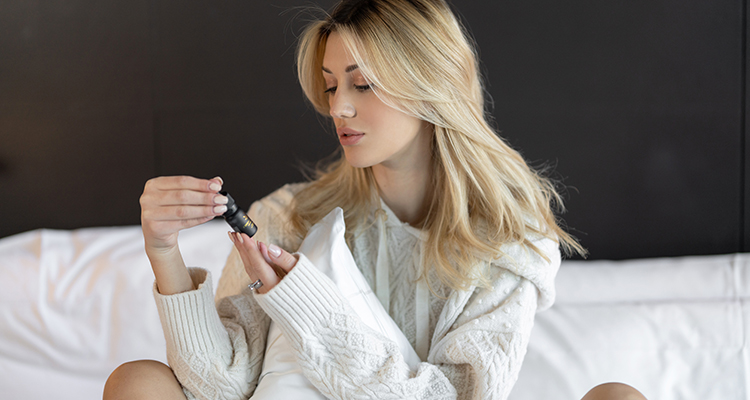
Listed below are the pros and cons of using CBD for sleep problems:
Pros
According to a 2016 study, CBD can improve rapid eye movement sleep behavior disorder (RBD) symptoms – in some people. Researchers found that participants, who took CBD, experienced lower levels of anxiety and stress and more quality zzz after using CBD, than those who received the placebo.
Study results suggest that CBD can be used as a natural alternative sleep aid minus the harmful side-effects of more traditional prescription sleep medications. Thus, researchers have concluded that CBD may not only help people suffering from sleep disorders, but also those struggling with insomnia sleep more soundly at night.
Similarly, previous CBD studies have found that CBD is not linked to side-effects and does not appear to affect daily functioning when used for sleep difficulties. As a result, researchers have concluded that CBD is a generally safe natural alternative for insomnia. Similarly, the World Health Organization (WHO) and the National Institute on Drug Abuse (NIDA) also reported that CBD “is non-addictive and generally well-tolerated with a good safety profile.”
Cons
Studies indicate that CBD may not be a long-term solution for insomnia. However, research on the long-term effectiveness of CBD for sleep problems is limited at this time. Moreover, the FDA has not approved CBD as an insomnia treatment.
But, although, CBD has not been approved by the FDA, CBD products with less than 0.3% of THC are legal under federal laws. However, some states still consider CBD illegal, so it is important to check your state laws before purchasing this natural compound.
CBD side-effects are rare; however, some people may experience mild diarrhea, dry mouth, reduced appetite, mild headaches, low blood pressure, delayed motor functions, fatigue, and lightheadedness after using CBD. And, according to a 2019 study, CBD may negatively interact with some medications.
Note: There are two versions of CBD – full-spectrum (containing less than 0.3% of THC) and CBD isolates (containing 0% of THC).
Is CBD Effective for Insomnia?
It depends on the individual.
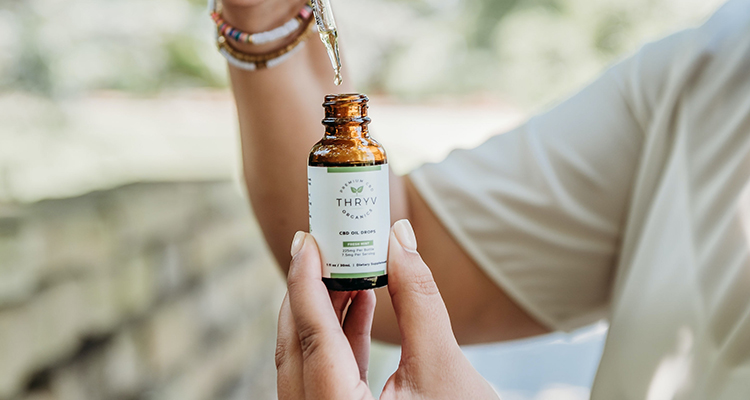
Additional studies are needed to determine the full effectiveness for people, who have a hard time getting sound sleep at night. Still, some studies suggest that CBD may help you get more zzz. In fact, a 2018 study found that the cannabinoids can reduce or eliminate insomnia and improve sleep in some people.
However, this study relied heavily on cannabis flowers, which involve a variety of cannabinoids – not just the ones involved in CBD. Thus, determining which cannabinoids (CBD and/or other ones) are responsible for this improvement in sleep quality is challenging.
Similarly, a 2019 study found that 79% of the participants with anxiety and poor sleep experienced significantly lower levels of anxiety within a month of taking CBD. Researchers also found that approximately 66% of the participants (overall) experienced mild-to-moderate improvement in sleep quality after using CBD for a month.
Thus, results indicate that CBD may help some insomniacs sleep better at night. However, it is important to understand that although participants experienced a decline in anxiety during the study, their quality of sleep fluctuated once the study concluded.
Other limited studies also suggest that CBD oil can help improve sleep in children. In fact, a 2016 study involving a 10-year-old with PTSD and insomnia experienced a reduction in anxiety and insomnia and an improvement in sleep length and quality after using a CBD supplement for 5 months.
How Much CBD Should You Take for Insomnia?
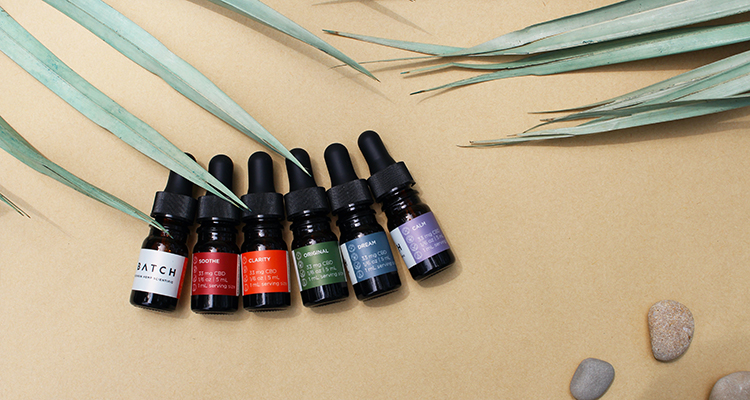
One of the major pluses of CBD is that it doesn’t not give you a “high” unlike its THC counterpart. Because there are no standard doses for any condition, CBD dosage is usually based on trial-and-error. Most people start out on the lower end at 10mg of CBD to determine how their bodies will react to it.
Take this dose for a week or two to see if this is the right dose for you. If you do not notice any change in your sleep patterns, slowly increase the milligrams or the frequency of your use. Keep inching up how much you use and how often you use it until you find the dosage that will help you sleep better at night.
CBD is usually taken orally (i.e. tinctures or edibles); however, the preferred method of ingestion is a personal preference. Keep in mind that every person’s body chemistry is different, thus, finding the best dosage for you comes with practice. The typical range for sleep issues is 10-20 milligrams. However, in severe cases of insomnia, as much as 160mgs of CBD, can be safely used 15-30 minutes before bed to combat sleeplessness.
Note: It is important that you speak with your doctor before you add or increase your CBD usage. This is especially true for children under the age of 18 and pregnant women, because the long-term effects of CBD in children and unborn fetuses are unknown at this time. So, if you fall into one of these categories, it is important that you refrain from taking this supplement. The good news is that CBD oil is normally devoid of significant side-effects for the general population.
Although rare, the most common mild side-effects include:
- Fatigue (Tiredness)
- Gastrointestinal Distress (Nausea, Upset Stomach, Gas & Vomiting)
- Mood Swings
- Dizziness
- Headaches
- Dry Mouth
What Are the Best CBD Products for Sleep?
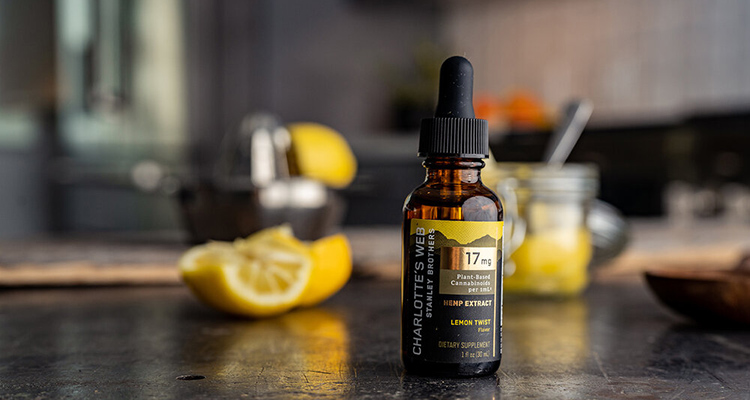
Finding the right CBD products for your health concerns can be challenging. And, because the FDA does not monitor CBD products the same way it monitors prescription medications and some supplements, these items may be misclassified, or deliberately misrepresented or falsified. As a result, it is extremely important that you conduct your own research to find the best CBD product for your sleep problem.
Listed below are the 8 best CBD products for sleep:
- Charlotte’s WebAccording to Healthline, Charlotte’s Web is the best CBD gummy product for people suffering from a lack of sleep. Charlotte’s Web was created in 2013 by the Stanley Brothers to help Charlotte Figi, a young girl, who was struggling with a rare seizure disorder better manage it. The goal was to calm the Charlotte’s brain activity, so she no longer experienced the seizures. It was a success.Charlotte’s Web offers high-CBD and low-THC raspberry-flavored gummies for sleep. The gummies contain 10mgs of CBD, per serving, and a bottle contains 60 gummies. In addition to CBD, the gummies list melatonin as one of the key ingredients.
- Joy Organics Lavender CBD Bath BombsHealthline recommends trying Joy Organics Lavender CBD Bath Bombs if you are having a hard time falling or staying sleep. Why? Because there is nothing more relaxing than a CBD-infused warm bath.Adding a CBD bath bombs to your bedtime routine can help calm your mind and relax your body so you don’t feel so stressed and anxious. Each bath bomb contains 25mgs of CBD and comes in a pack of 4. The bath bombs also contain cocoa seed butter, coconut oil, and lavender oil, which are known for calming the mind and relaxing the body.
- CBD Sleep SprayThe CBD Reviewer cites CBD Sleep Spray as one of the best CBD products for insomnia. This CBD product contains a blend of calming herbs (stevia leaf extract, GABA, valerian root, etc.) known for improving sleep.Just squirt 2 sprays in succession under your tongue, hold the oil there for 30 seconds, and then swallow it. Use the spray about 15 minutes before you retire for the night. Not only will you get the peaceful sleep you’ve been craving, you’ll also awaken feeling refreshed and ready for the day.
- Medterra CBD + Melatonin Dissolvable TabletsAccording to CBD Origins, the Medterra CBD + Melatonin Dissolvable Tablets is a winner for quality sleep. Medterra has garnered dozens of 5-star rating from customers, and as a result, is one of the most popular CBD brands for sleep. This CBD product involves a mixture of CBD oil (25mgs) and melatonin (10mgs) in a dissolvable tablet.Each bottle contains 30 tablets and each tablet offers relaxation and an opportunity to experience a restful sleep. The Medterra CBD + Melatonin Dissolvable Tablets can help stop the endless tossing and turning that can accompany insomnia and other sleep disorders.
- The CBD PillowCBD pillow? Yes! Brittany Loggins, a Yahoo Life writer, suggests that The CBD Pillow is the best CBD product on the market for insomnia. The CBD Pillow is not only hypoallergic, but also comes with plush gel memory foam. Even the included pillow cover is infused with CBD. The CBD pillow is especially beneficial during this time of COVID-19 when many people are having a hard time falling and staying asleep due to stress, anxiety, and interrupted daily routines.And, unlike most CBD products that lose their effects after a few hours, this CBD-infused pillow continues to release tiny doses of CBD throughout the night so you can get a good night’s rest. How does this pillow dispense CBD? CBD is released when your skin and hair rubs against it. The friction activates it. CBD is seeps into your skin and hair follicles, helping you fall and stay asleep throughout the night.
How long does it take to work? Well, it depends, but Brittany stated that it took her approximately 15 minutes to drift off for the night. She only awakened one time to go to the bathroom, which up to that point was a rarity for her. Brittany also reported that she “awakened every morning feeling well-rested and fresh.” No morning grogginess with this CBD product!
- Hippi TeaLas Vegas News swears by Hippi Tea for sleep issues like insomnia. Hippi Tea is the perfect fit for individuals, who are not fond of oral CBD oil products like tinctures and/or those who simply don’t like the texture or taste of gummies. Because tea has always been associated with relaxation, it just makes sense to combine CBD with delicious tea. That is where Hippi Tea comes into play.This CBD-infused tea comes in two varieties – Hippi Daydreamer, a CBD black/caffeine-based tea, and Mellow, a soothing CBD herbal/caffeine-free tea. The honey and lemon-flavored, Daydreamer tea, was one of the first black CBD teas on the market. FYI: It is best to drink this tea cold.
Another plus? This tea can be consumed in the morning to help you prepare for the day or in the evening to help you unwind so you can fall asleep. Like the Daydreamer tea, the herbal Mellow CBD tea can help you stay mellow (calm) throughout the day so you remain focused or it can help “mellow you out” if you’ve had a stressful or disappointing day, so you can get some much-needed zzz.
- PureKana CBD Sleep-Aid TinctureAccording to Dr. Mike Bohl, the PureKana CBD Sleep-Aid Tincture is the best CBD product for sleep problems like insomnia. PureKana is one of the most reputable online U.S. CBD brands on the market. This company offers 1500mgs of pure CBD oil. It contains less than 0.3% THC.The PureKana Sleep-Aid tincture offers a blend of CBD and CBN (“rarer” chemical compound found in cannabis and hemp plants) specifically designed to help with a variety of sleep issues. A 1975 study found that CBN behaves like a sedative, calming the mind and body and promoting sound sleep.
However, additional, up-to-date studies need to be conducted to determine the efficacy of using CBN to help with insomnia and other sleep problems. This sleep-aid also contains 1mg of melatonin, per serving. What does the PureKana taste like? Well, according to users, this tincture tastes like a combo of lavender, chamomile, lemongrass, ho wood, and jasmine.
- Rest CBD CreamAccording to Mission Farms CBD, the Rest CBD Cream is ideal for winding down and falling asleep after a long and stressful day. Rest CBD Cream can be added to your bedtime routine, so you fall asleep and stay asleep all night long.This CBD topical contains goat milk cream, essential oils, and 600mgs of full-spectrum CBD to help your body prepare for bedtime. The goat milk cream along with calming essential oil fragrances help ease your stress and tension so you can peacefully slumber the night away. CBD helps relax your tense muscles, calms your frazzled nerves, and eases pain and discomfort so you can go to bed without worrying that you won’t be able to fall asleep.
Summary
CBD has been used for centuries to combat illnesses, improve sleep, and lower anxiety levels. Researchers have also discovered that CBD is a viable natural pain-relief option for some people. CBD is beneficial for people, who find it hard to fall and stay asleep throughout the night, primarily because it reduces anxiety and/or eases pain so you can get some much-needed zzz.
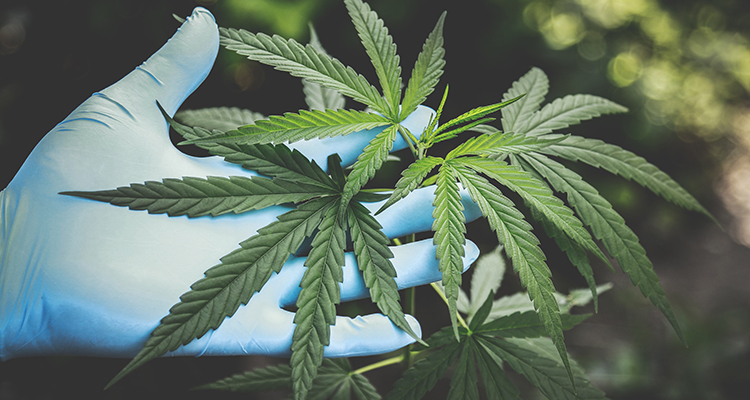
And, because, you are rested (from the CBD); you awaken the next morning feeling relaxed and refreshed. In other words, unlike other sleep aids, you don’t awaken feeling groggy (from psychoactive properties) or disoriented. CBD can also help you avoid daytime sleepiness and remain alert throughout the day. With every study and personal testimony, we are beginning to better understand the role CBD can play in our health and well-being. Thus, our knowledge of the potential benefits of CBD is constantly growing.
References
- Shannon, S., Lewis, N., Lee, H., & Hughes, S. (2019). Cannabidiol in anxiety and sleep: A large case series. The Permanente Journal, 23, 18–041. Retrieved from https://doi.org/10.7812/TPP/18-041
- Vigil, J. M., Stith, S. S., Diviant, J. P., Brockelman, F., Keeling, K., & Hall, B. (2018). Effectiveness of raw, natural medical cannabis flower for treating insomnia under naturalistic Conditions. Medicines, 5(3), 75. Retrieved from https://doi.org/10.3390/medicines5030075
- Mayo Clinic. (2016). Insomnia. Retrieved from https://www.mayoclinic.org/diseases-conditions/insomnia/symptoms-causes/syc-20355167
- Mayo Clinic. (2018). Post-traumatic stress disorder (PTSD). Retrieved from https://www.mayoclinic.org/diseases-conditions/post-traumatic-stress-disorder/symptoms-causes/syc-20355967
- Shannon, S., & Opila-Lehman, J. (2016). Effectiveness of cannabidiol oil for pediatric anxiety and insomnia as part of posttraumatic stress disorder: A case report. The Permanente journal, 20(4), 16-005. Retrieved from https://doi.org/10.7812/TPP/16-005
- Babson, K. A., Sottile, J., & Morabito, D. (2017). Cannabis, cannabinoids, and sleep: A review of the literature. Current Psychiatry Rep, 19(4), 23. Retrieved from https://pubmed.ncbi.nlm.nih.gov/28349316/
- Ferguson, S. (2020). 6 best CBD brands for sleep. Healthline. Retrieved from https://www.healthline.com/health/best-cbd-oil-for-sleep
- The CBD Reviewer. (2018). How CBD help with sleep and insomnia. Retrieved from https://thecbdreviewer.com/how-cbd-help-with-sleep-and-insomnia/
- Pava, M. J., Makriyannis, A., & Lovinger, D. M. (2016). Endocannabinoid signaling regulates sleep stability. PloS One, 11(3), e0152473. Retrieved from https://pubmed.ncbi.nlm.nih.gov/27031992/
- Carlini, E. A. & Cunha, J. A. (1981). Hypnotic and anti-epileptic effects of CBD. Journal of Clinical Pharmacology, 21, 4178-4278. Retrieved from https://pubmed.ncbi.nlm.nih.gov/7028792/
- World Health Organization (WHO). (2018). Cannabidiol (CBD) critical review report. Retrieved from https://www.who.int/medicines/access/controlled-substances/CannabidiolCriticalReview.pdf
- National Institute on Drug Abuse (NIDA). (2015). Researching marijuana for therapeutic purposes: The potential promise of cannabidiol (CBD). National Institute on Drug Abuse. Retrieved from https://www.drugabuse.gov/about-nida/noras-blog/2015/07/researching-marijuana-therapeutic-purposes-potential-promise-cannabidiol-cbd
- Machado Bergamaschi, M., Helena Costa Queiroz, R., Waldo Zuardi, A., & Crippa, A. S. (2011). Safety and side effects of cannabidiol, a Cannabis sativa constituent. Current drug safety, 6(4), 237-249. Retrieved from https://pubmed.ncbi.nlm.nih.gov/22129319/
- Brown, J. D., & Winterstein, A. G. (2019). Potential adverse drug events and drug–drug interactions with medical and consumer cannabidiol (CBD) use. Journal of Clinical Medicine, 8(7), 989. Retrieved from https://www.researchgate.net/publication/334291482_Clinical_Medicine_Potential_Adverse_Drug_Events_and_Drug-Drug_Interactions_with_Medical_and_Consumer_Cannabidiol_CBD_Use
- WebMD. (2021). Cannabidiol (CBD). Retrieved from https://www.webmd.com/vitamins/ai/ingredientmono-1439/cannabidiol-cbd
- Felton, M. (2019). Every question you have about CBD—Answered. Health.com. Retrieved from https://www.health.com/condition/pain/what-is-cbd
- Bradford, A. (2017). What is THC? Live Science. Retrieved from https://www.livescience.com/24553-what-is-thc.html
- Blessing, E. M., Steenkamp, M. M., Manzanares, J., & Marmar, C. R. (2015). Cannabidiol as a potential treatment for anxiety disorders. Neurotherapeutics: The Journal of the American Society for Experimental Neurotherapeutics, 12(4), 825–836. Retrieved from https://doi.org/10.1007/s13311-015-0387-1
- Psychology Today. (2021). Circadian rhythm. Retrieved from https://www.psychologytoday.com/us/basics/circadian-rhythm
- Komorowski, J. & Rola, S. H. (2007). The role of the endocannabinoid system in the regulation of endocrine function and in the control of energy balance in humans]. Postepy Hig Med Dosw, 61, 99-105. Retrieved from https://pubmed.ncbi.nlm.nih.gov/17369778/
- Skelley, J. W., Deas, C. M., Curren, Z., & Ennis, J. (2020). Use of cannabidiol in anxiety and anxiety-related disorders. J Am Pharm Assoc, 60(1), 253-261. Retrieved from https://pubmed.ncbi.nlm.nih.gov/31866386/
- Mikosra. (2018). Is CBD Legal Under Federal Law? Vanderbilt Law School. Retrieved from https://my.vanderbilt.edu/marijuanalaw/2018/09/is-cbd-legal-under-federal-law/
- Blake, D. K. (2021). What states legalized CBD oil: 2021 update. American Marijuana. Retrieved from https://americanmarijuana.org/what-states-is-cbd-oil-legal/
- Grinspoon, P. (2018). Cannabidiol (CBD) — what we know and what we don’t. Harvard Medical School. Retrieved from https://www.health.harvard.edu/blog/cannabidiol-cbd-what-we-know-and-what-we-dont-2018082414476
- U.S. Food & Drug Administration. (2021). FDA regulation of cannabis and cannabis-derived products, including cannabidiol (CBD). Retrieved from https://www.fda.gov/news-events/public-health-focus/fda-regulation-cannabis-and-cannabis-derived-products-including-cannabidiol-cbd
- Mayo Clinic. (2018). REM sleep behavior disorder. Retrieved from https://www.mayoclinic.org/diseases-conditions/rem-sleep-behavior-disorder/symptoms-causes/syc-20352920
- Loggins, B. (2021). This CBD pillow seriously helps me fall asleep faster. Yahoo Life. Retrieved from https://www.yahoo.com/lifestyle/cbd-pillow-seriously-helps-fall-175442977.html
- Cadena, A. (2020). The best CBD products for sleep of 2020. Retrieved from https://cbdorigin.com/cbd-products-for-sleep/#:~:text=The%20Best%20CBD%20Products%20for%20Sleep%20CBDPM%20Sleep,NutraCanna%20CBD%20Sleep%20Tablets%20Verified%20CBD%20Sleep%20Spray
- Karniol, I. G., Shirakawa, I., Takahashi, R. N., Knobel, E., & Musty, R. E. (1975). Effects of delta9-tetrahydrocannabinol and cannabinol in man. Pharmacology, 13(6), 502-12. Retrieved from https://pubmed.ncbi.nlm.nih.gov/1221432/
- Ferguson, S. (2020). Everything you need to know about CBN oil. Healthline. Retrieved from https://www.healthline.com/health/cbn-oil#what-is-cbn
- Foley, L. (2020). Insomnia. The Sleep Foundation. Retrieved from https://www.sleepfoundation.org/insomnia
- Shannon, S. & Opila-Lehman, J. (2016). Cannabidiol oil for decreasing addictive use of marijuana: A case report. Integrative Medicine 14(6), 31-35. Retrieved from https://www.researchgate.net/publication/291946703_Cannabidiol_Oil_for_Decreasing_Addictive_Use_of_Marijuana_A_Case_Report
- Megelin, T. & Ghorayeb, I. (2017). Cannabis for restless-legs syndrome: a report of six patients. Sleep Medicine, 36,182-183. Retrieved from https://pubmed.ncbi.nlm.nih.gov/28655453/
- Shannon, S., & Opila-Lehman, J. (2016). Effectiveness of cannabidiol oil for pediatric anxiety and insomnia as part of posttraumatic stress disorder: A case report. The Permanente Journal, 20(4), 16-005. Retrieved from https://doi.org/10.7812/TPP/16-005
- Chagas, M. H., Crippa, J. A., Zuardi, A. W., Hallak, J. E., Machado-de-Sousa, J. P., Hirotsu, C., Maia, L., Tufik, S., & Andersen, M. L. (2013). Effects of acute systemic administration of cannabidiol on sleep-wake cycle in rats. Journal of Psychopharmacology, 27(3), 312-6. Retrieved from https://pubmed.ncbi.nlm.nih.gov/23343597/
- Jamal, F. (2021). How much CBD for sleep? How to take and accurate dosage? Red Storm Scientific. Retrieved from https://www.redstormscientific.com/cbd-dosage-for-sleep/
- NIH News in Health. (2020). The risks of vaping. Retrieved from https://newsinhealth.nih.gov/2020/05/risks-vaping
- Allen, J. G., Flanigan, S. S., LeBlanc, M., Vallarino, J., MacNaughton, P., Stewart, J. H., & Christiani, D. C., (2016). Flavoring chemicals in e-cigarettes: Diacetyl, 2, 3-pentanedione, and acetoin in a sample of 51 products, including fruit-, candy-, and cocktail-flavored e-cigarettes. Environmental Health Perspectives. Retrieved from https://ehp.niehs.nih.gov/doi/10.1289/ehp.1510185
- Rutledge, R. (2015). Harvard study confirms dangers of vaping. Journal Sentinel. Retrieved from http://archive.jsonline.com/watchdog/watchdogreports/harvard-study-confirms-dangers-of-vaping-b99631238z1-361343541.html#:~:text=%20Harvard%20study%20confirms%20dangers%20of%20vaping%20,sometimes%20fatal%2C%20lung%20condition%20known%20as…%20More%20
- Cumberbatch, J. (2019). Everything you need to know about CBD tinctures. Elle. Retrieved from https://www.elle.com/culture/a27149060/what-are-tinctures/
- Caporuscio, J. (2020). What to know about vaping CBD. Medical News Today. Retrieved from https://www.medicalnewstoday.com/articles/vaping-cbd
- Morales-Brown, L. (2020). The top CBD bath bombs and salts. Medical News Today. Retrieved from https://www.medicalnewstoday.com/articles/cbd-bath-bombs
- CBD Oil Review. (2021). Complete guide to CBD topicals. Retrieved from https://cbdoilreview.org/cbd-cannabidiol/complete-guide-to-cbd-topicals/
- Leonard, J. (2020). What to know about CBD isolate. Medical News Today. Retrieved from https://www.medicalnewstoday.com/articles/cbd-isolate#:~:text=CBD%20isolate%20is%20a%20crystalline%20solid%20or%20powder,test%2C%20but%20it%20will%20not%20cause%20a%20high.
- Thompson, R. (2021). Full-Spectrum CBD: What it is and best Products. Healthline. Retrieved from https://www.healthline.com/health/full-spectrum-cbd

